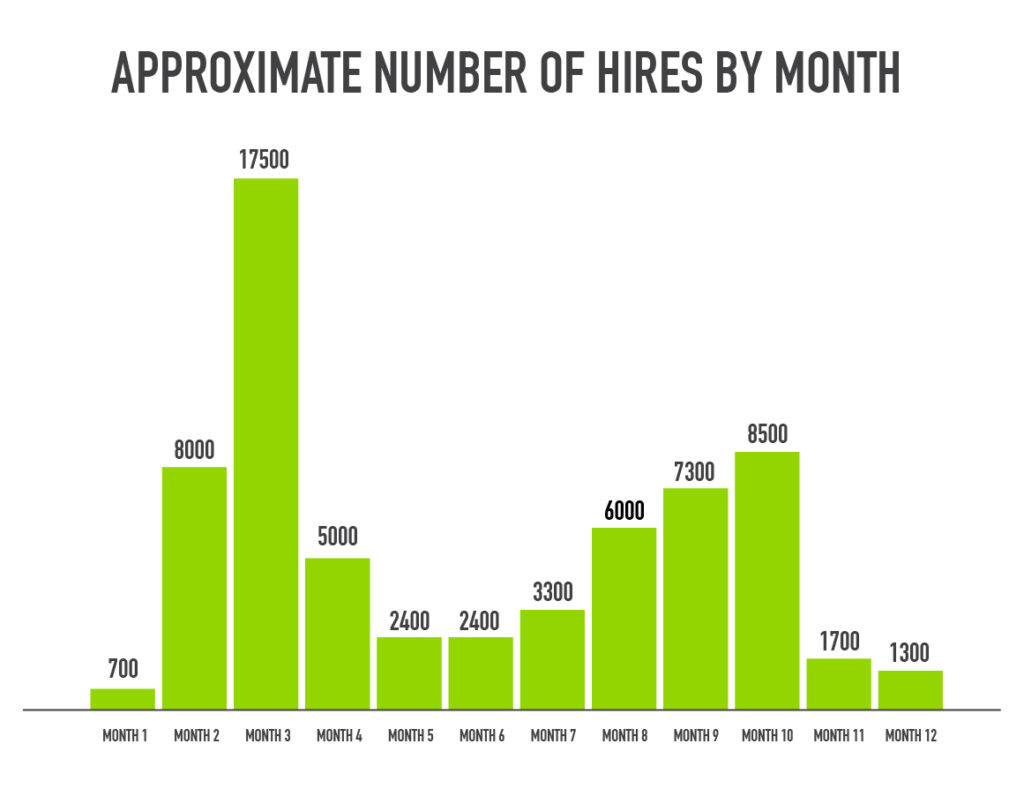
Situation
Openreach approached PeopleScout to help them stand up and deliver a new senior leadership programme which would allow starters to rotate through a series of roles to provide them with the skills needed to be successful in a director position.
Openreach wanted PeopleScout to drive the assessment process and to source candidates for the programme, presenting a list of the most suitable top candidates. The roles included:
- Senior Engineering Area / Regional Manager Fibre Network & Delivery (FND)
- Chief Engineer – Senior Operations Manager
- Senior Area Manager – Service Delivery
The aim of the programme was to improve diversity and innovative thinking within the business. The business to date was lacking in gender and ethnic diversity, with most employees coming from a telecoms background. Openreach wanted to bring in candidates from diverse backgrounds with experience managing large operational teams outside of the telecoms sector. To do this, we interviewed senior leaders and heads of resourcing to understand the transferrable skills they were looking for. From this we were able to make a target list of industries and organisations which had similarities. These included field operations and management, logistics, and engineering as well as consumer-centric operations such as retail.
Openreach also wanted to improve career pathways within the business. So, our second aim was to support internal mobility by introducing a new step stone between senior management and director levels.
Our team were given a short time frame of just four weeks to create a solution and design the process. Plus, we would then have to present candidates to Openreach for interviews in a competitive market.
Solution
Our team were tasked with attracting and sourcing candidates, designing and supporting the assessment centre and completing the recruiter screening. Our solution also included a candidate attraction marketing campaign, including writing job copy and building a microsite.
Advertising Plan
Our skilled team devised an inclusive and effective advertising plan. This involved creating a tailor-made job advert and a microsite containing relevant and exciting content about the opportunities available. Using imagery and quotes from their current directors, we brought the Openreach story to life and showed what real employees’ roles looked like. We supported our diversity goal by using both female and male directors in the attraction content.
The microsite played the biggest part in telling the story, taking potential Future Leadership programme candidates through their first few years at the company, detailing where they’ll end up.
We partnered with Openreach’s media partner for the campaign strategy for which LinkedIn was predominantly used. Posts from employees were used as well as brand-led posts that recruiters leveraged to highlight roles. We again drove our diversity objectives by using more women in our social media posts to amplify their voices.
A Sourcing-Led Approach
To begin, the recruitment process was sourcing-led, focusing on the candidate experience and the thorough qualification of candidates. We also specifically targeted passive candidates from different industries with key transferrable skills. In order to help bring the role to life, we were able to direct candidates towards the microsite and video content that PeopleScout created for the campaign.
Assessment
Our team worked with Openreach senior leaders to design an assessment solution, involving job analysis and a competency assessment framework. This enabled us to create a stepwise assessment process to evaluate candidates through cognitive testing and personality profiling. The penultimate stage involved a competency-based interview to identify a shortlist of candidates to present to Openreach for final interviews.
The assessment design included a feedback report from the interview panel for each candidate as well as a feedback interview for candidates who completed the testing stage.
Results
PeopleScout’s assessment design for Openreach led to:
- All required roles filled
Amongst the new joiners, 25% identified as female and another 25% identified as Asian or Black. All selected hires scored highly in both the online test assessment and the interview.
- 3:1 interview-to-offer acceptance
Our detailed assessment process was a good predictor of success. From the 81 candidates who were screened by recruiters, 34 candidates were selected for assessment, with 23 advanced final interviews. Out of the 23, 10 were offered roles with eight acceptances.
The overall process from start to finish included a collaborative relationship from all teams at Openreach and PeopleScout to successfully deliver a brand new programme.
Ten months on from the candidate’s start date, we can confirm they have all successfully passed probation and are all actively working towards a director position.
AT A GLANCE
- COMPANY
Openreach - PEOPLESCOUT SOLUTIONS
Recruitment Process Outsourcing - ANNUAL HIRES
10 Future Leadership programme candidates
“PeopleScout were really thorough, understood our requirements and ensured that they were able to accurately represent our business and the specific roles we were recruiting for. Communication throughout the process was excellent and they delivered the end result we were looking for. When we surveyed our new joiners about their pre-hire experience, without exception they all held PeopleScout in high regard. We would have no hesitation in using PeopleScout in the future.”
Katrina Baillie, Head of Resourcing, Openreach



